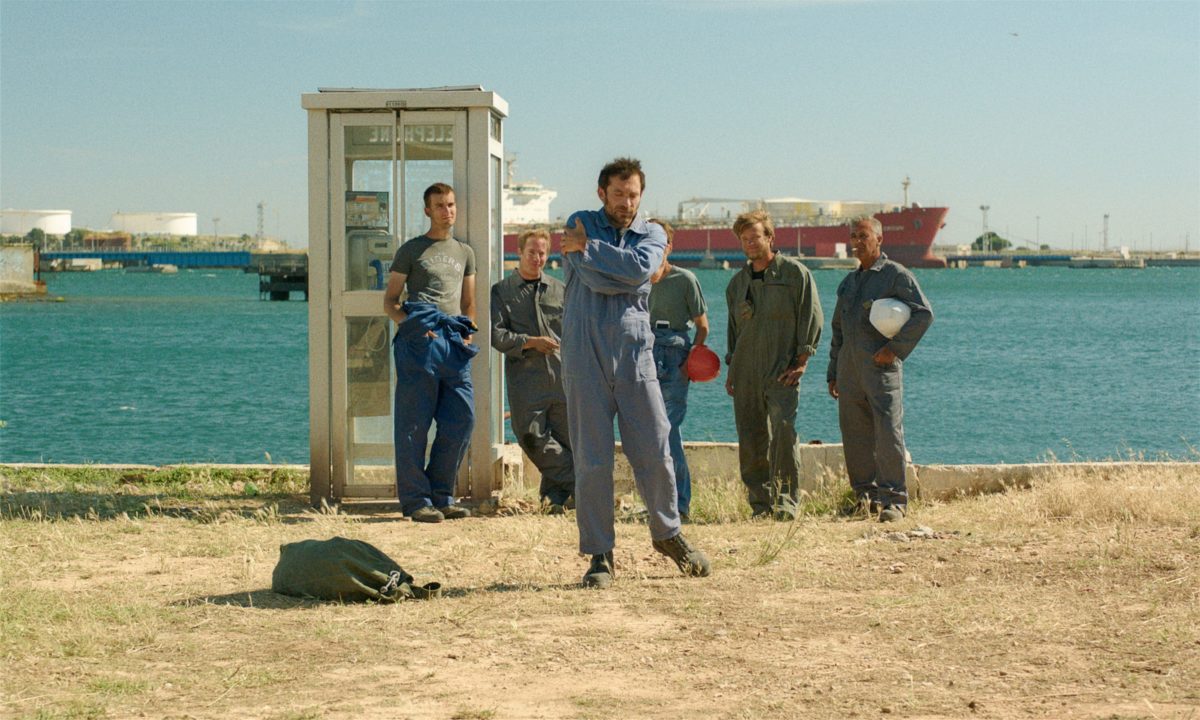It’s no easy task creating an unlikable character that will win over audiences. While Breaking Bad’s Walter White (Bryan Cranston), for instance, is universally met with contempt, he’s also a captivating presence. Despite the fact that the protagonist of Nadège Trebal’s Douze Mille (2019), Frank (Arieh Worthalter) is a similarly objectionable character, he doesn’t have the same appeal.
Surrounded by his life partner Maroussia (Nadège Trebal) and their children, Frank is depicted as a family man, but soon enough it’s obvious that he isn’t a stable paternal role model. Instead, Frank is a man with a natural affinity to deceive and obtain money from unsuspecting customers of the junkyard he works at. When discovered, and subsequently fired, Frank, to Marrousia’s dislike, leaves town for another job and will only return when he’ll have 12,000 euros in hand. From that moment on, Frank graduates from stealing in a scrapyard to emptying containers in a port.
With no essential difference between one grey backdrop and another, the film doesn’t offer a lot visually, and mainly relies on Frank’s character arc alone. Worthalter’s performance, thriving whenever Frank has money in his possession, is demanding because he’s characterized by a fundamental paradox. Initially portrayed as a free-spirited personality who revels in the intensity of his sex life with Maroussia, and the adrenaline high of his ruses, he’s also obsessively evaluating his self-worth in monetary terms. While Frank is supposed to stand opposite capitalism, his erotic connection to money ends up reproducing it. This duality, however, isn’t problematic in itself; issues arise when Frank stays away from his family longer than needed, loses Maroussia’s trust, and then looks for redemption in repaying a debt. This gesture is meant to suggest that Frank overcomes his money-centered thinking, but in reality it’s just a weak attempt to provide a simple resolution in a happy ending.
